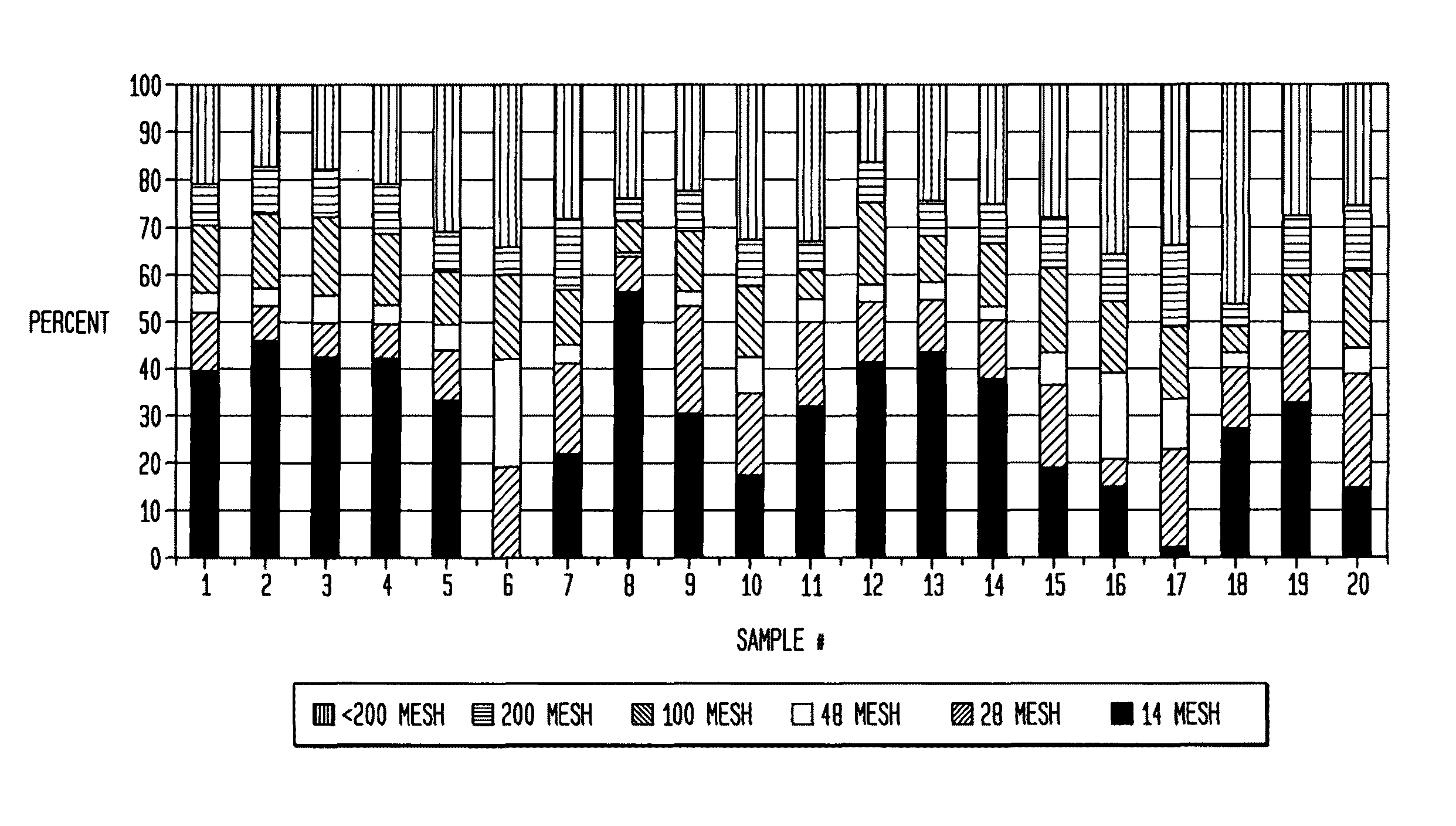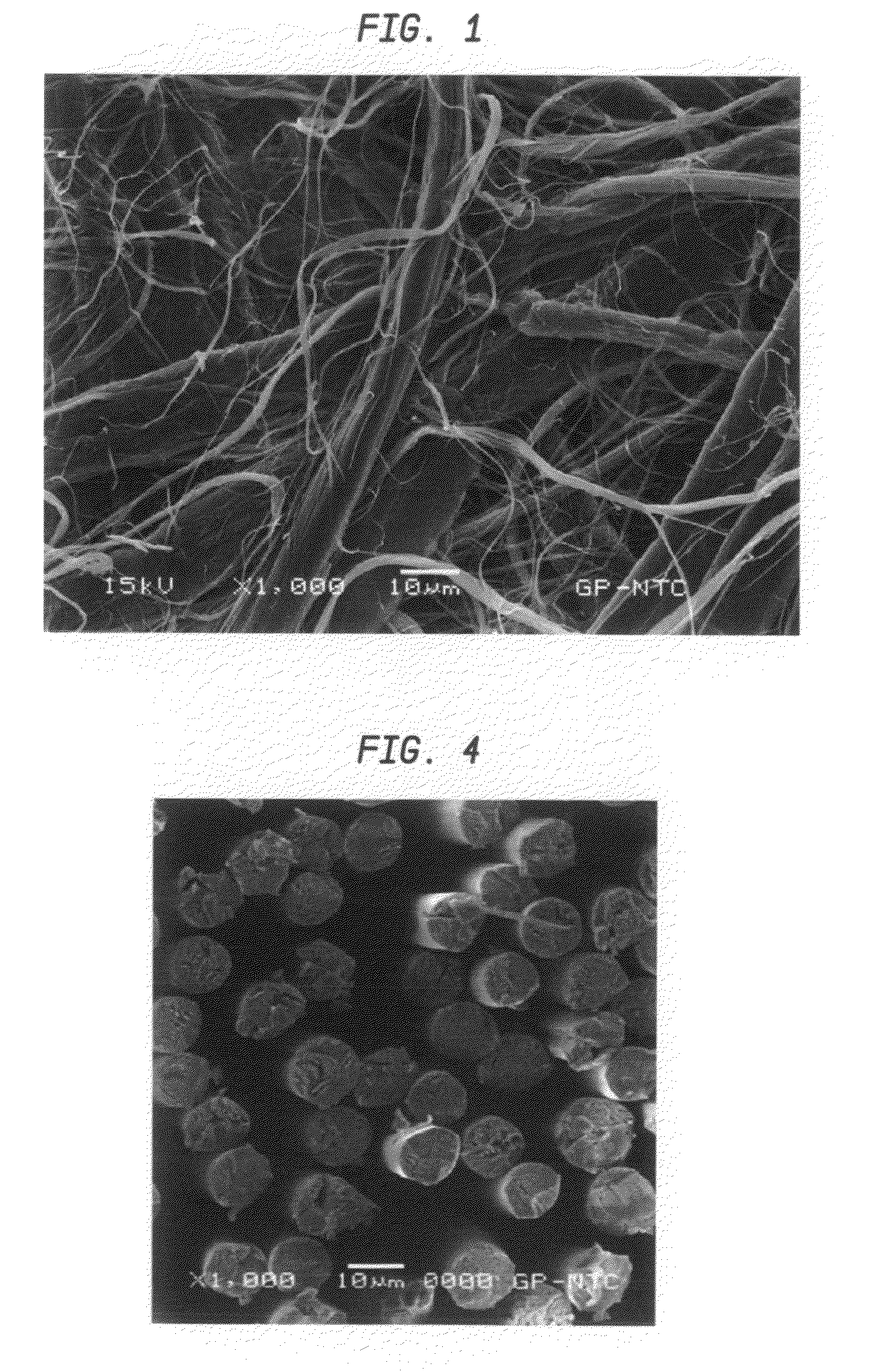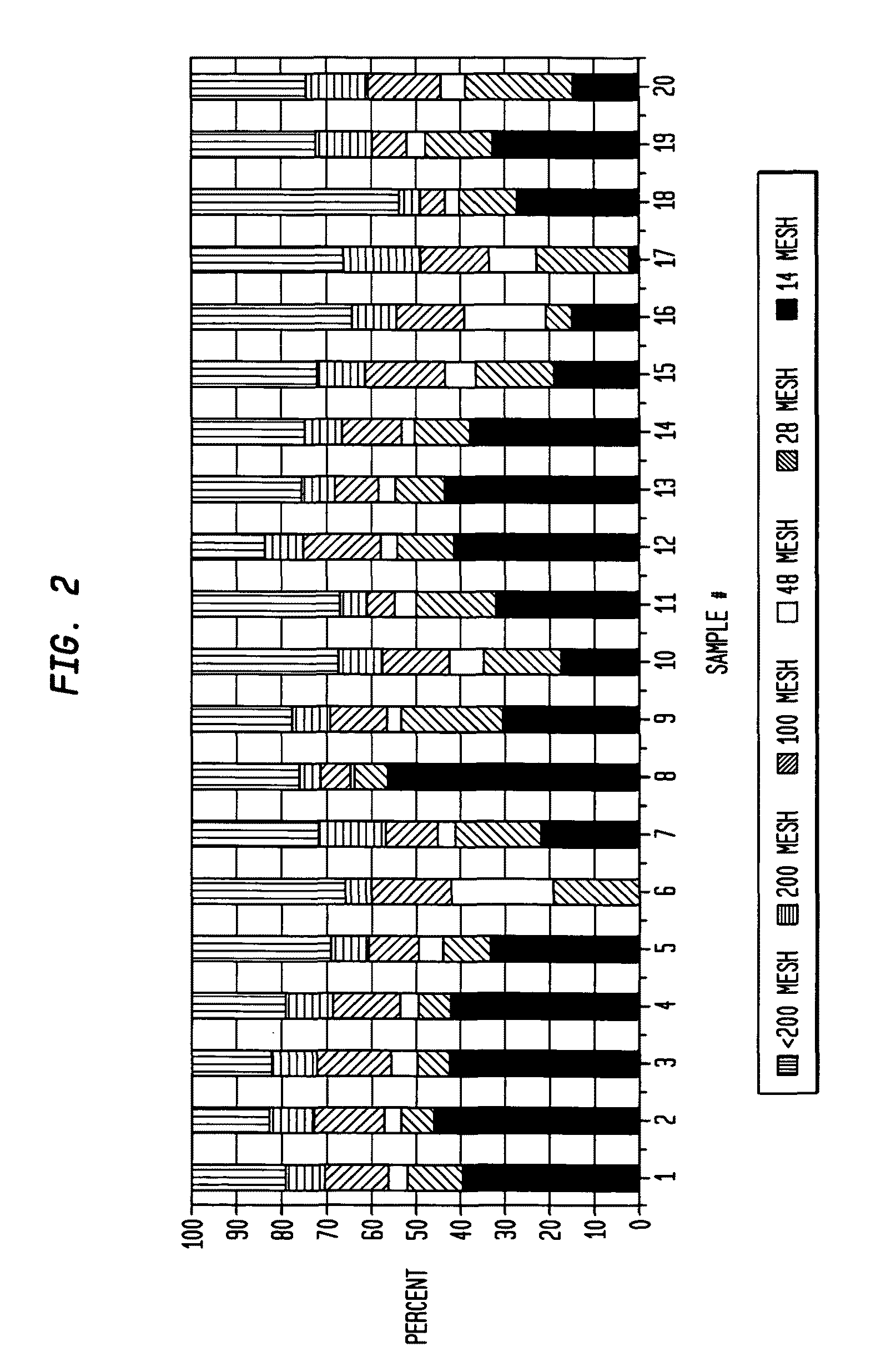Absorbent sheet incorporating regenerated cellulose microfiber
a technology of absorbent sheets and microfibers, applied in the field of absorbent sheets, can solve the problems of difficult to employ in conventional wet-forming papermaking processes for absorbent webs, affecting the tensile strength of absorbent sheets, etc., and achieves the effect of high wet/dry tensile ratio
- Summary
- Abstract
- Description
- Claims
- Application Information
AI Technical Summary
Benefits of technology
Problems solved by technology
Method used
Image
Examples
example 1
[0124]A hand sheet study was conducted with southern softwood and fibrillated lyocell fiber. The stock lyocell fiber was 1.5 denier (16.6 mg / 100 m) by 4 mm in length, FIG. 4, which was then fibrillated until the freeness was <50 CSF. It is seen in FIGS. 5 and 6 that the fibrillated fiber has a much lower coarseness than the stock fiber. There is shown in FIGS. 7-11 photomicrographs of fibrillated lyocell material which passed through the 200 mesh screen of a Bauer McNett classifier. This material is normally called “fines”. In wood pulp, fines are mostly particulate rather than fibrous. The fibrous nature of this material should allow it to bridge across multiple fibers and therefore contribute to network strength. This material makes up a substantial amount (16-29%) of the 40 csf fibrillated Lyocell.
[0125]The dimensions of the fibers passing the 200 mesh screen are on the order of 0.2 micron by 100 micron long. Using these dimensions, one calculates a fiber population of 200 billio...
example 2
[0146]This hand sheet example demonstrates that the benefit of fibrillated lyocell is obtained predominantly from short, low coarseness fibrils rather than partially refined parent fibers unintentionally persisting after the refining process. 6 mm by 1.5 denier lyocell was refined to 40 freeness and fractionated in a Bauer McNett classifier using screens with meshes of 14, 28, 48, 100, and 200. Fiber length is the primary factor that determines the passage of fibers through each screen. The 14 and 28 mesh fractions were combined to form one fraction hereafter referred to as “Longs”. The 48, 100, 200 mesh fractions and the portion passing through the 200 mesh were combined to form a second fraction hereafter referred to as “Shorts”. Southern softwood was prepared by refining it 1000 revolutions in a PFI mill. Hand sheets were prepared at 15 lb / ream basis weight, pressed at 15 psi for five minutes, and dried on a steam-heated drum. Table 8 compares hand sheets made with different comb...
examples 78-89
Towel Examples 78-89
[0182]Towel-type handsheets were prepared with softwood / lyocell furnish and tested for physical properties and to determine the effect of additives on wet / dry CD tensile ratios. It has also been found that pretreatment of the pulp with a debonder composition is surprisingly effective in increasing the wet / dry CD tensile ratio of the product, enabling still softer products. Details are given below and appear in Table 12.
[0183]The wood pulp employed in Examples 78-89 was Southern Softwood Kraft. CMC is an abbreviation for carboxymethyl cellulose, a dry strength resin, which was added @ 5 lb / ton of fiber. A wet strength resin (Wsr) was also added in these examples; Amres 25 HP (Georgia Pacific) was added @ 20 lb / ton of fiber (including lyocell content in the fiber weight). The debonder composition (Db) utilized was a Type C, ion paired debonder composition as described above applied @ 10% active and was added based on the weight of pulp-derived papermaking fiber, ex...
PUM
| Property | Measurement | Unit |
|---|---|---|
| number average diameter | aaaaa | aaaaa |
| number average diameter | aaaaa | aaaaa |
| number average diameter | aaaaa | aaaaa |
Abstract
Description
Claims
Application Information
 Login to View More
Login to View More - R&D
- Intellectual Property
- Life Sciences
- Materials
- Tech Scout
- Unparalleled Data Quality
- Higher Quality Content
- 60% Fewer Hallucinations
Browse by: Latest US Patents, China's latest patents, Technical Efficacy Thesaurus, Application Domain, Technology Topic, Popular Technical Reports.
© 2025 PatSnap. All rights reserved.Legal|Privacy policy|Modern Slavery Act Transparency Statement|Sitemap|About US| Contact US: help@patsnap.com



